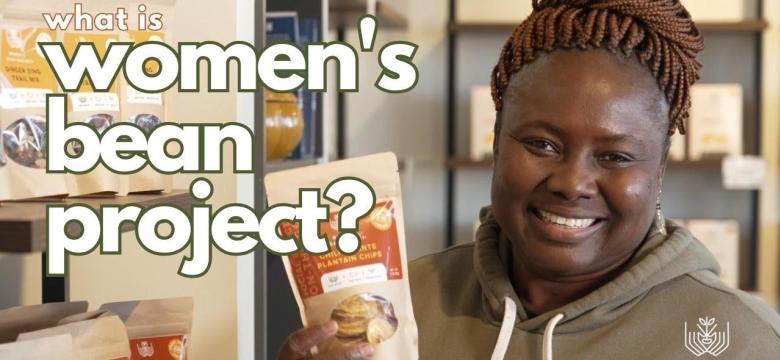When the Women’s Bean Project was founded by Jossy Eyre in 1989, it was a simple enterprise with a straightforward mission: to help women experiencing chronic unemployment and instability to become independent and to find stable work with opportunities for growth.
Summary
- The big catalog of tasty food products are available throughout Denver, online and in 1,000 stores across the U.S.
- You can take a tour of the facility and sign up as a volunteer
Eyre was a volunteer at a daytime women’s shelter in Denver. Shelters, she observed, played a key role in keeping these vulnerable women safe. What shelters couldn’t do, however, was to answer that crucial question: what comes next? There was a need that wasn’t being met. And thus, with $500, two women and a selection of beans, the Women’s Bean Project was born.
Though sales-driven non-profits are far from the norm, that mechanism makes supporting the project pretty simple for locals and visitors alike.
“Thirty-six years later, our original [10] bean soup is still our best-selling product,” reflects the project's longtime CEO Tamra Ryan. [Ryan recently stepped down and was replaced by Shelby Mattingly as the new CEO.]
Today, the Women's Bean Project offers a substantial and incredibly varied number of tasty, Colorado-made products. There’s truly something for everyone — from gummy fish candies to gluten-free gift boxes to that classic 10 bean soup, it’s easy to see why their busiest months are those leading up to the holidays. These products are available both online, and many can be found in more than 1,000 brick-and-mortar stores across the United States. Both as a program and a product, word-of-mouth is key to the project's ongoing work.
“How we have grown is that people have bought the product and given our product as a gift, and then it spreads.” The nationwide presence is often a surprise to locals here in the Denver metro area. “We don’t have a big marketing budget,” Ryan laughs. “Don’t underestimate the power of helping us spread the word about the organization, because it’s hugely impactful.”
And that mission will continue with the project's new CEO.
“Sharing food has always been one of my most personal expressions of care, bringing people together and creating a sense of belonging. My professional purpose has been rooted in helping women and communities thrive. The work of Women’s Bean Project — to nourish people, build community, and create pathways to success — feels deeply personal to me. I’m honored to lead an organization that nurtures women’s potential, fosters economic independence, and builds lasting change.”
—Shelby Mattingly, the Women's Bean Project's new CEO
A Unique Human-First Approach
The program welcomes volunteers from the community, particularly during the busy holiday season. Tours of the production floor are also available on the first Friday of every month at noon (reservations preferred).
“Women generally come to work with us for six to nine months,” Ryan says. “During the time they’re with us, it’s a full-time job, with them spending 70% of their paid time working in the business in some way. We call that ‘the bean job.’ The other 30% is spent working on herself. We call that the ‘you job.’”
Ryan credits the success of the project in part to this unique human-first approach to workforce development. “I think […] that’s what differentiates programs that have great outcomes. It’s that combination of work experience, support and [the women in the program] working on themselves.” The difference is a long-term one. “By design, women only work for us for the six to nine-month period. The whole goal is that when she leaves us, she moves on to a career entry-level job in the community.”
The resources provided to the program’s participants vary from case to case, depending on need — everything from art therapy to the basics of how to get a job interview to adult literacy/numeracy courses and beyond are on the table. To date, Ryan estimates that roughly 1,500 women have passed through the project's doors, although she clarifies that an exact figure isn’t available (in large part due to inconsistent record keeping when the organization was young).
Changing Lives, One at a Time
By design, the project's work is intertwined with the community it serves. After graduation, which is marked by an annual fundraising event/celebration called "Ready to Grow," each woman is provided with a job coach (a volunteer from the community) who meets with her each week to help with the transition to the outside workforce. To track progress, the project also incentivizes check-ins with each graduate, offering payment in exchange for check-ins and progress reports at certain intervals. Roughly 80% of graduates stay engaged with the program and continue to check in even years after moving on.
“One of the things I fundamentally believe is that when you change a woman’s life, you change her family’s life,” Ryan says. “And the reason to support a woman-serving organization is because of that ripple. Frankly, either as a donor or supporter of an organization like Women’s Bean Project, you’re getting more bang for your buck as a result. It’s about more than just the woman.”
So what's the most rewarding part of this work?
“I get the opportunity to meet every cohort at the very beginning of her journey, on her very first day,” Ryan says, her face softening. “I get to watch [these women] blossom, their self-discovery. I see her accomplish goals that she set for herself. When you work in the nonprofit world, you don’t always get to see the impacts firsthand. But I get to witness it firsthand.”
And, of course, the Women’s Bean Project brings a personal taste of Colorado into the lives of the people who enjoy its products — wherever they may reside.




